Could a Geneva meeting open the door to peace in Syria?
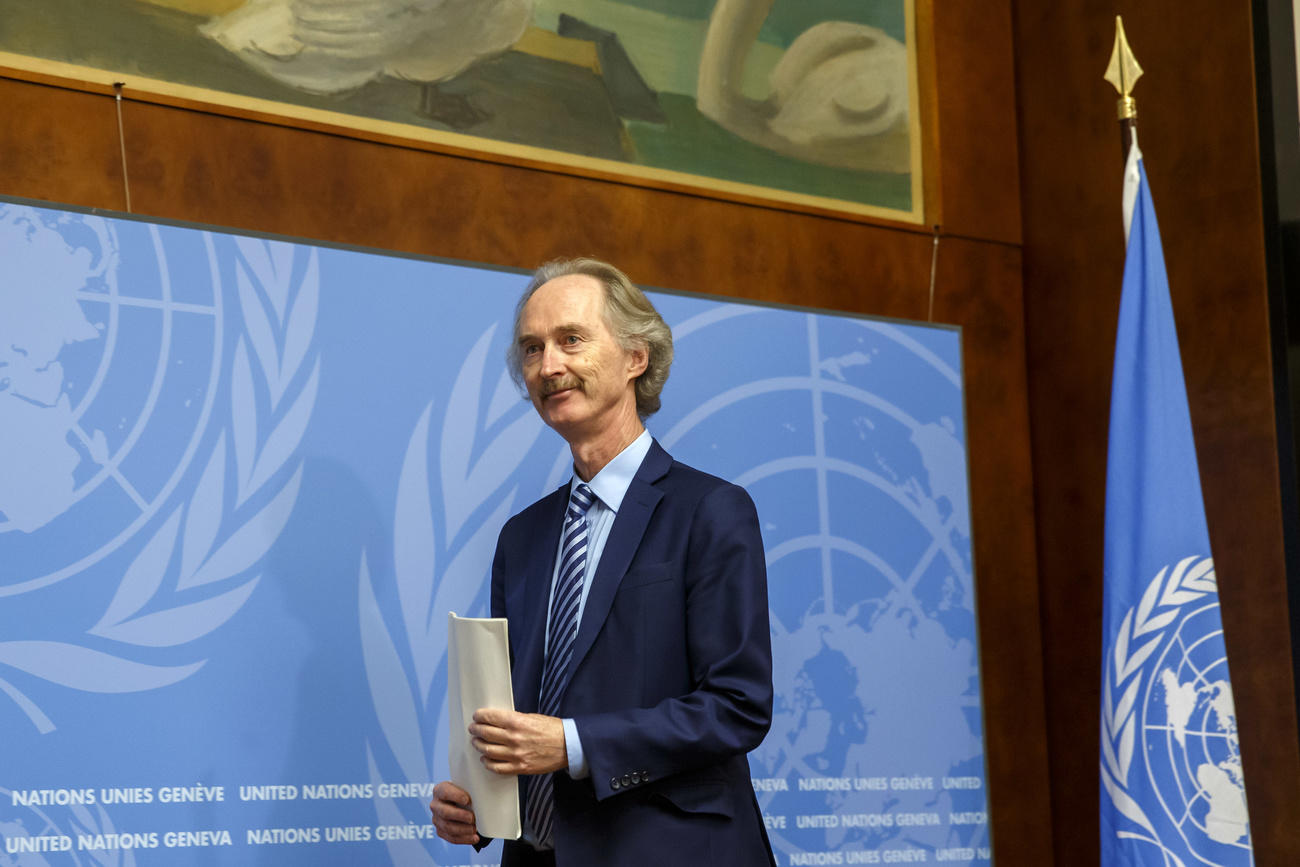
Diplomats and officials are gathering in Geneva on Wednesday for the first meeting of Syria’s Constitutional Committee, aimed at mapping a political way forward for the conflict-wracked country. This is what the talks are all about.
What is the importance of this Syria meeting?
After many rounds of failed peace talks over the past eight years, all eyes are again on Geneva. A congress convened by Russia last year tasked United Nations Special Envoy Geir PedersenExternal link with forming a committee to draft a new constitution.
Last month the UN announced an agreementExternal link between Syria’s government and opposition on the formation of the 150-member committee. The UN said this marked “the first concrete political agreement” by the warring sides to begin to implement the 2012 roadmap to peace adopted by key nations, which was endorsed in the 2015 UN Security Council Resolution 2254External link. Geneva is the next step.
Who is attending?
The 150-member committee in Geneva comprises 50 people selected by the Syrian government, 50 by the opposition and 50 by the UN from civil society (30% of the overall total are women).
Each group will appoint 15 people to prepare and draft constitutional proposals to be submitted to the committee for adoption – ideally by consensus, or at least with a 75% majority.
It took almost two years for agreement on membership. The UN list faced lengthy objections, mainly from the Syrian government, over the names and scope of the work. Each delegation includes Kurds, but there is no representation by the Syrian Democratic Forces (SDF) or YPG militia.
Pedersen is overseeing the process, assisted by two co-chairs: Ahmad Kuzbari for the Syrian government and Hadi Al-Bahra for the opposition. The UN envoy is the fourth to hold the job after the previous three – including former UN Secretary-General Kofi Annan – resigned following years of mediating peace talks that led nowhere.
What are the chances of success?
Pedersen believes the committee could be a “door-opener” towards a more inclusive, broader political process, reforms and eventually new elections to unify Syria.
He insists it will be a Syrian-led process facilitated by the UN, with the full support – but not direct participation – of world powers such as Turkey, Iran, Russia, the US, the EU and Saudi Arabia, which have sent envoys.
The committee will meet in Geneva “for a few days”, but it is unclear how long the drafting group plans to continue working.
“I am optimistic that in the not-too-distant future we will see tangible progress in the discussions,” Pedersen told reporters on Monday.
But he admits the committee alone cannot solve the conflict. He has called for “tangible progress” in Geneva and “meaningful progress on the ground”. This could include early confidence-building measures such the release of women and children who have been detained by parties to the conflict.
However, with a clear military upper hand, the government of Syrian President Bashar Assad may be reluctant to offer any concessions, and Syrian officials have suggested Assad may run again in elections.
The agreement on the committee’s formation was signed off in December 2018 by Russia, Turkey and Iran, the trio of countries in the so-called Astana Group, which launched the Astana peace process aimed at ending the Syrian conflict in January 2017.
The Astana process gradually eclipsed the earlier UN-sponsored negotiations framework known as the Geneva process, which had put more emphasis on political transition but failed to curb violence. There have been 13 meetings in Astana, Kazakhstan, and also in Sochi, Russia, with representatives of the Syrian regime and some opponents, but they have made only modest progress.
Swiss support
As in earlier peace talks, Switzerland has lent it its full support to the committee’s work and to finding a peaceful solution to the conflict.
It has also established a platform in Geneva, the Civil Society Support Room, enabling over 400 Syrian organisations and individuals to participate in the peace process.
Since 2011, Switzerland has provided over CHF430 million in humanitarian aid to Syria.
What’s the situation on the ground in Syria?
Since March 2011, hundreds of thousands of people have died in the Syrian conflict. Around half of Syria’s pre-war 22 million population have been displaced, many abroad, and large parts of the country are in ruins.
After successful operations to retake rebel-held areas, supported by Russia and Iranian-backed militias, the Syrian regime now reportedly governs around 60% of the country. Syria’s northwest, including the Idlib region, is the last major chunk still in rebel hands.
Damascus and Moscow declared a ceasefire on August 31 following five months of bombing of Idlib which the UN said killed hundreds of people. This month Assad reiterated a pledge to retake all areas he had lost.
Recent weeks have seen dramatic changes elsewhere. On October 9, Turkey launched an offensive against YPG militias after US President Donald Trump ordered American forces out of northeast Syria. Ankara halted its assault under a US-brokered ceasefire that called for a YPG withdrawal from the border area. Last week Washington said it would nonetheless maintain a reduced military presence in Syria to prevent Islamic State from seizing its oil fields and revenues.
The jihadist group was dealt a blow on Sunday when Trump announced that Islamic State leader Abu Bakr al-Baghdadi had diedExternal link during a raid led by US forces in Idlib province. The militia group once held a swathe of territory in Iraq and Syria but after military setbacks it slipped into the shadows. Over the past year it has continued to carry out bomb attacks in towns and cities in northern Syria, including targeting US forces. Islamic State fighters also still hold some ground in Syria’s remote central desert.
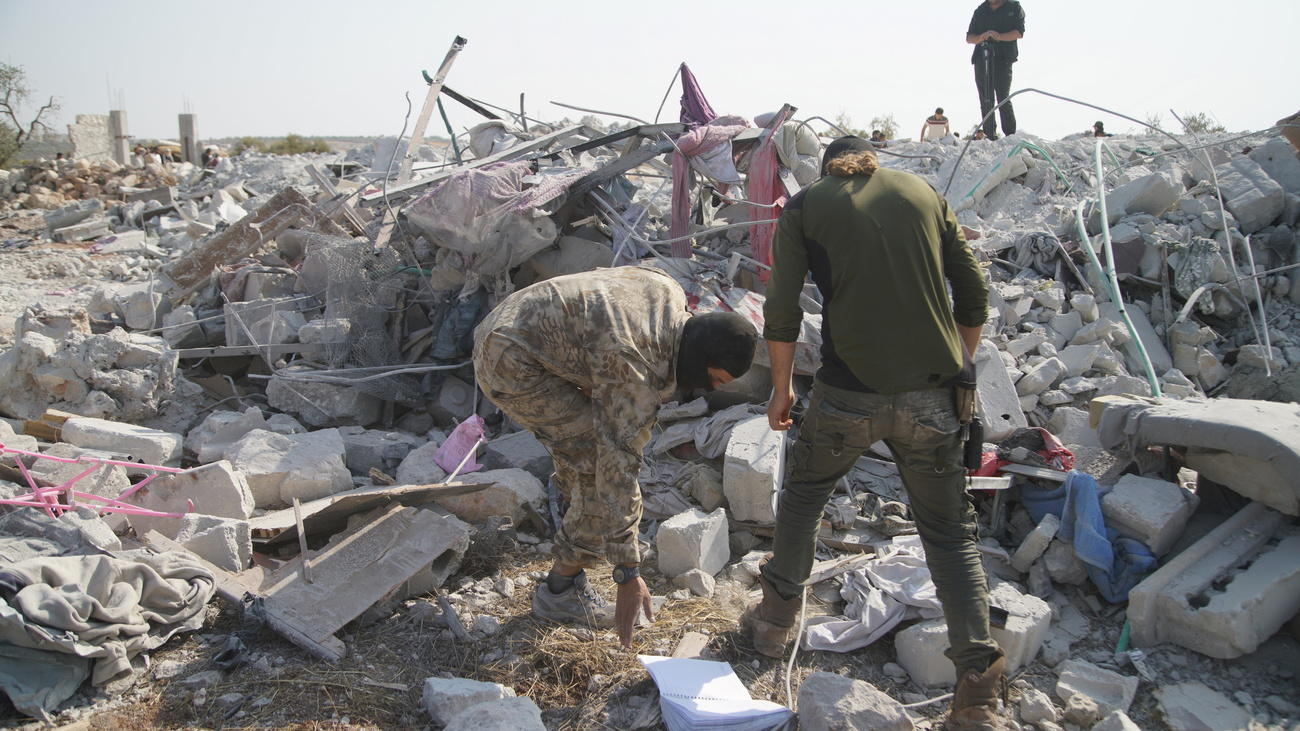
More
Swiss newspapers downplay the importance of Baghdadi killing

In compliance with the JTI standards
More: SWI swissinfo.ch certified by the Journalism Trust Initiative









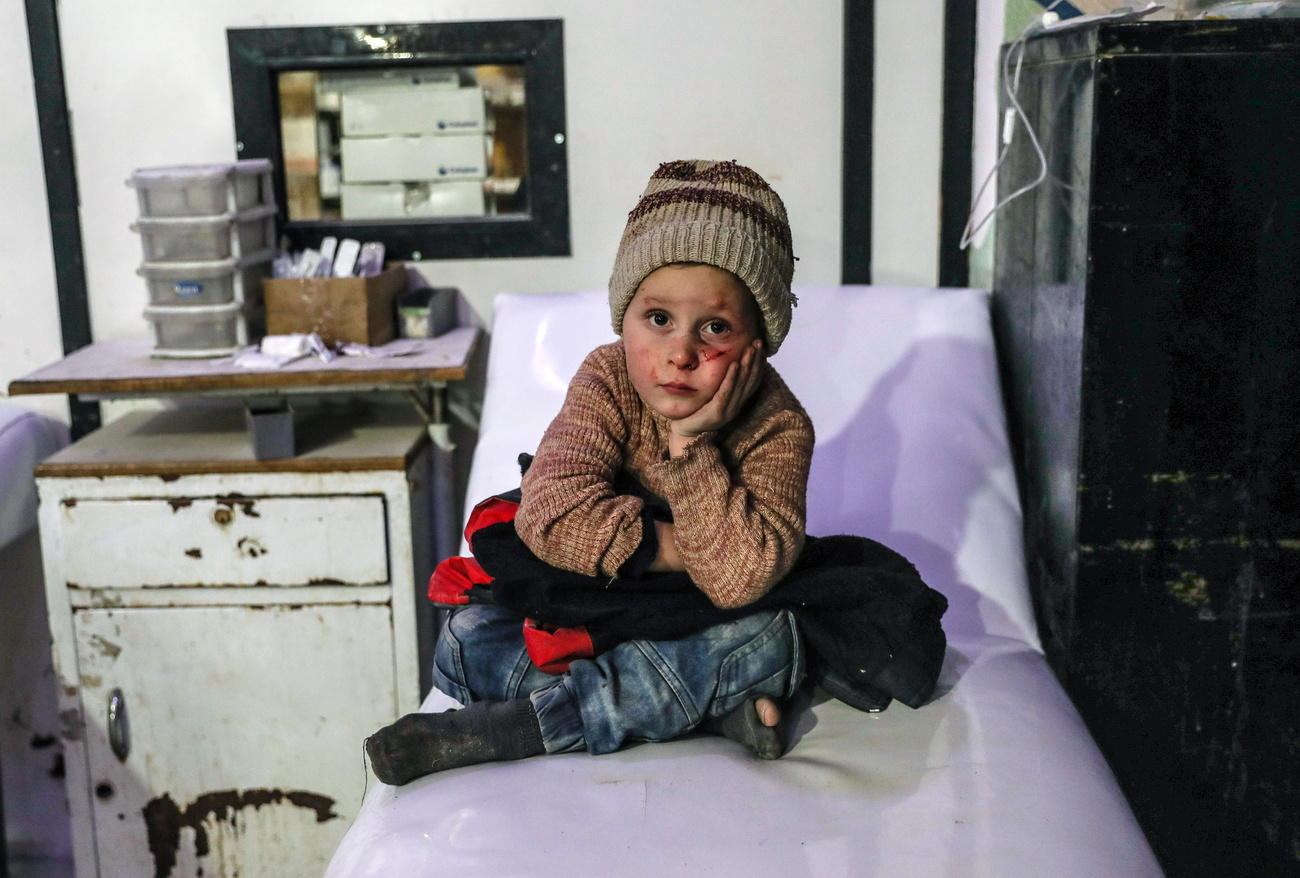
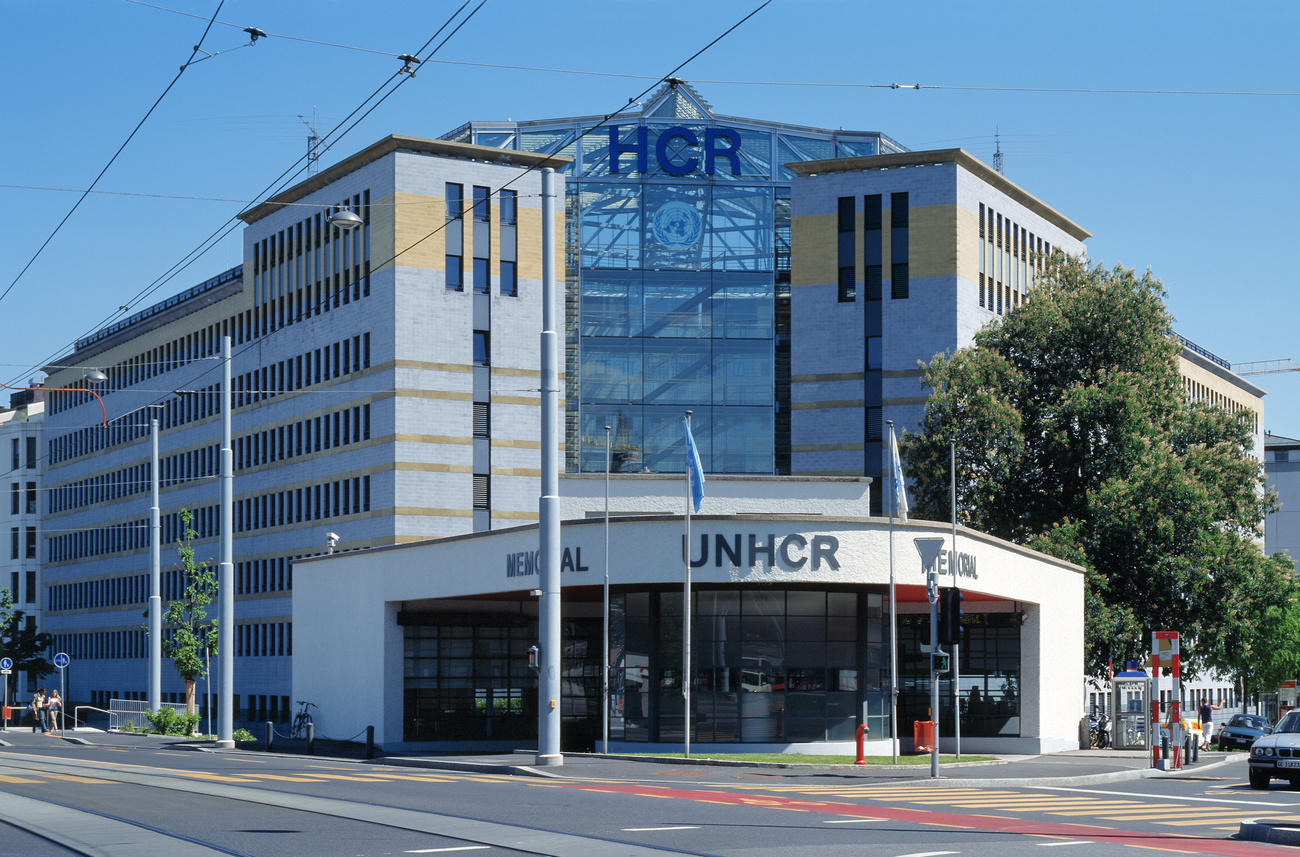
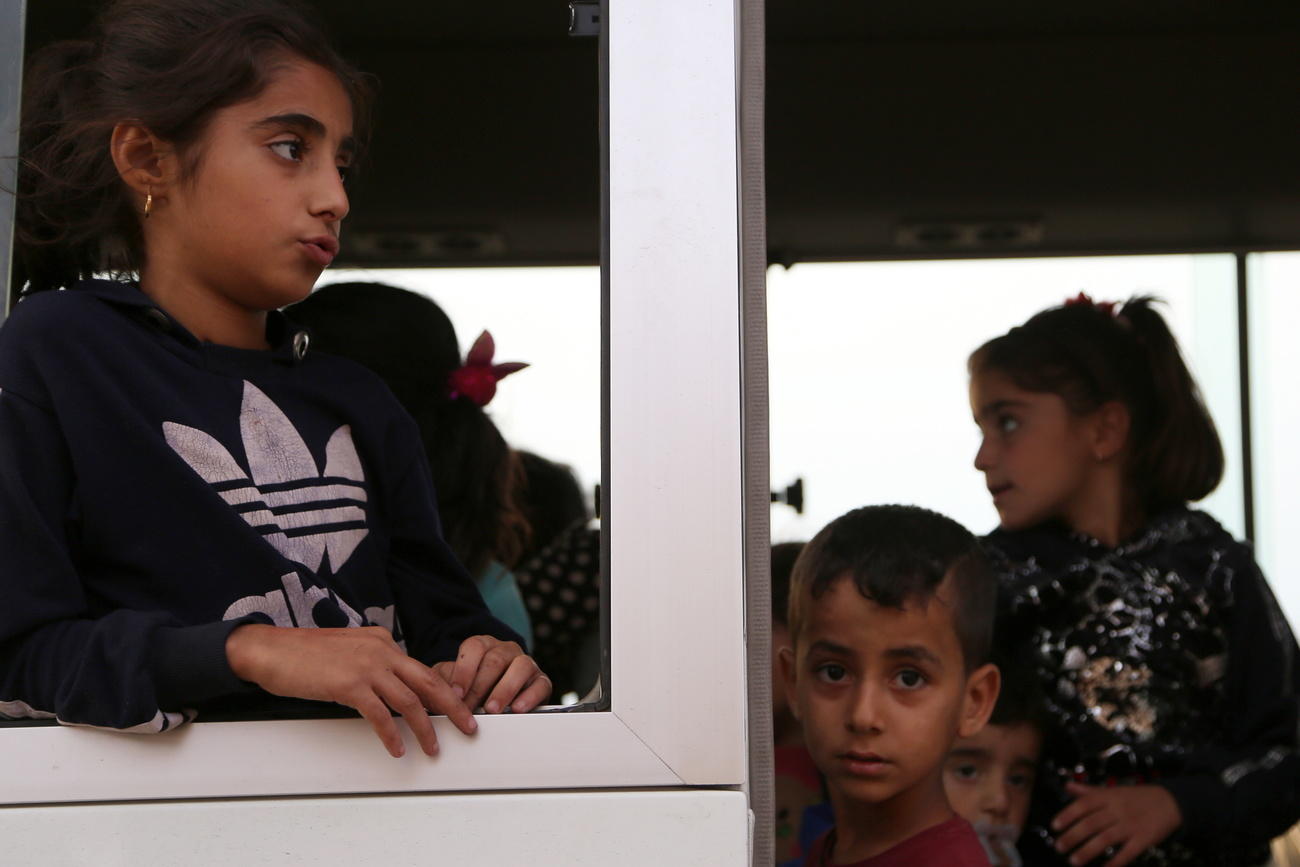


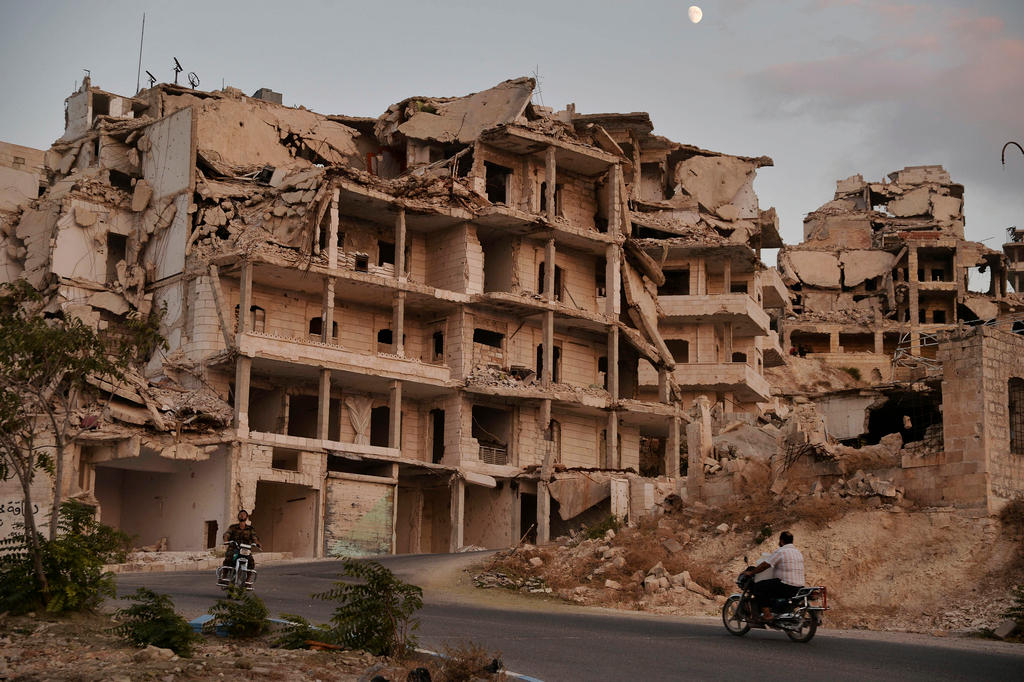

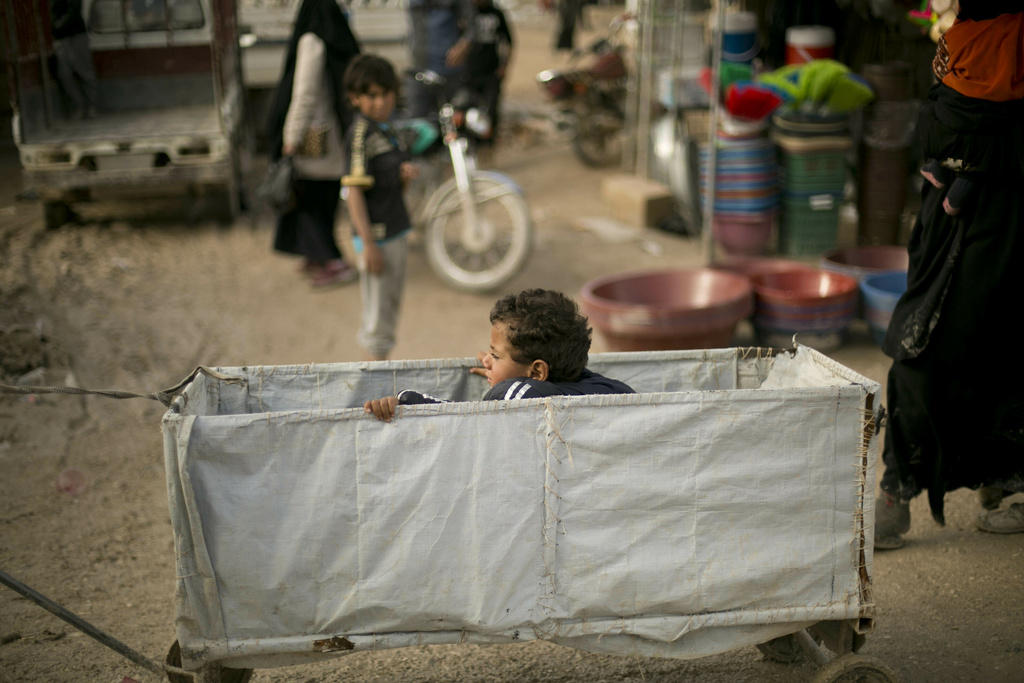
You can find an overview of ongoing debates with our journalists here . Please join us!
If you want to start a conversation about a topic raised in this article or want to report factual errors, email us at english@swissinfo.ch.